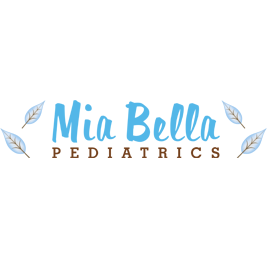Young Adults
Learning how to manage medical care independently
1. Independence and Self-Reliance
- Transition to Adulthood: As young adults, patients are moving away from the structured environment of home and parental care. Managing their own health is a key part of becoming independent and responsible.
- Skill Development: Learning to manage medical care helps develop important life skills such as organization, decision-making, and problem-solving.
2. Access to Healthcare Services
- Navigating Systems: College students often need to navigate different healthcare systems, including student health services, insurance providers, and local clinics. Self-management ensures they can efficiently handle these systems.
- Timely Care: Being proactive in managing health needs means students can address issues promptly, preventing minor problems from becoming major ones.
3. Health and Well-being
- Preventive Care: Regular check-ups, vaccinations, and screenings are easier to maintain when students are actively managing their health. This helps in preventing diseases and catching issues early.
- Mental Health: Self-management includes recognizing and addressing mental health needs, which is crucial during the high-stress environment of college.
4. Financial Responsibility
- Insurance Management: Understanding and utilizing health insurance helps manage costs effectively, avoid unexpected expenses, and maximize coverage benefits.
- Budgeting for Health: Managing medical expenses and understanding costs associated with care are important for financial planning.
5. Emergency Preparedness
- Response Readiness: Knowing how to handle medical emergencies and having a plan in place ensures students can respond quickly and effectively when needed.
- Personal Health Records: Keeping track of medical history and current conditions helps in emergencies and with continuity of care.
6. Academic Performance and Lifestyle
- Health Impacts on Studies: Good health is linked to better academic performance. Managing health issues proactively can reduce absences and improve concentration and energy levels.
- Balanced Lifestyle: Self-managing care involves maintaining a balanced lifestyle, which supports overall well-being and academic success.
7. Empowerment and Confidence
- Self-Efficacy: Taking charge of one's health builds confidence and empowers students to make informed decisions about their well-being.
- Advocacy Skills: Learning to advocate for oneself in healthcare settings prepares students for future interactions with medical professionals.
Overall, self-managing medical care helps young adults and college students take control of their health, ensuring they are well-prepared to handle the challenges and responsibilities of adulthood.

Create an Intelichart Portal Account
- You will use your portal account to communicate with medical staff and your primary care provider at Mia Bella.
- All lab and imaging results will be sent through the portal.
- Any forms or documents that need to be filled out need to be sent to the front desk via the portal.
- All completed forms and documents will be sent back via the portal and uploaded to your documents.
- Medication refills can be requested through portal.
- Lab and Imaging orders will be uploaded to your Documents.
INSURANCE
- Upload insurance card through your Phreesia registration link BEFORE your appointment.
- Balances and copays are due at the time of visit. If you have questions, you must contact our billers, BEFORE your appointment, via this form.
- A credit card on file form must be completed and a credit/debit card must be saved on file.
- Administration policy must be signed and submitted for the current year.
**Remember that managing medical expenses and understanding costs associated with care are important for financial planning.
APPOINTMENT TYPES
- Yearly well checks to review overall health.
- Sports physicals for sports clearance.
- Appointments for chronic problems like Asthma, ADHD, POTS, Anxiety and Depression, etc. must be completed on schedule.
**Medication refills will not be sent until the follow up has been completed.
**If you need to cancel or reschedule do so with 24 hours’ notice otherwise a no-show fee will be applied to your account.
THINGS TO COMPLETE AFTER YOUR VISIT
After the visit, it is IMPORTANT that you complete any labs, imaging, and appointments in a timely manner. Being compliant will ensure that you receive the best care possible.
Labs for Blood Draws and Stool Studies
Imaging Facilities for X-RAY’s, Ultrasound, MRI, CT, etc.
CT and MRI: May need a prior authorization and need an appointment.
Xray and Ultrasounds: You can usually do a walk in with no appointment needed.
**Print the order from your patient portal under documents and BRING IT WITH YOU to the appointment.
Below is a list of Imaging Facilities that we use often. Click on the links below:
Follow-up appointments viaTelemedicine App
Sign up for Portal- Create an account at Anytime Pediatrics. If it asks for a PIN use 0001 to link your account to our practice.
- Read and review the Telemedicine guidelines here.

